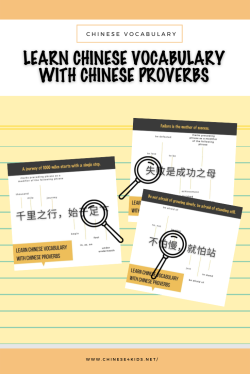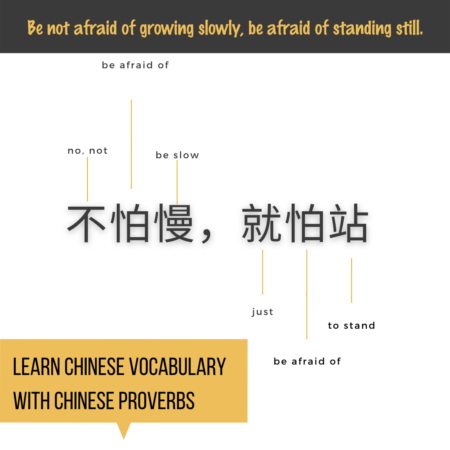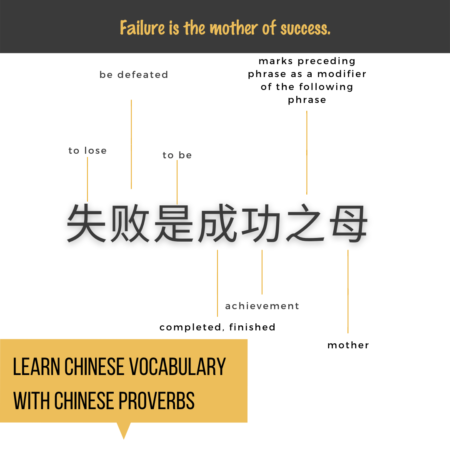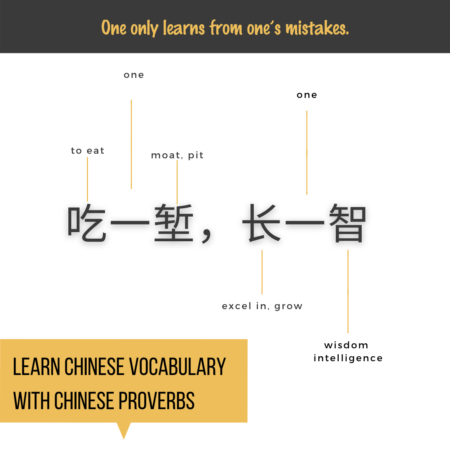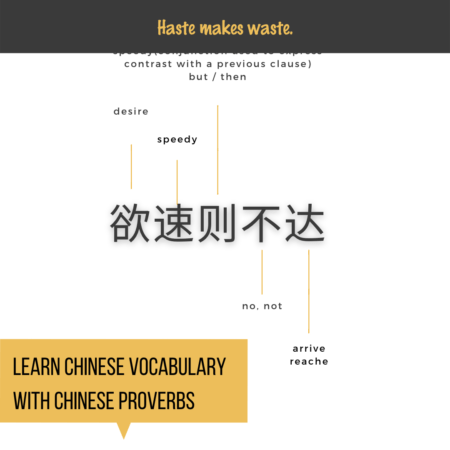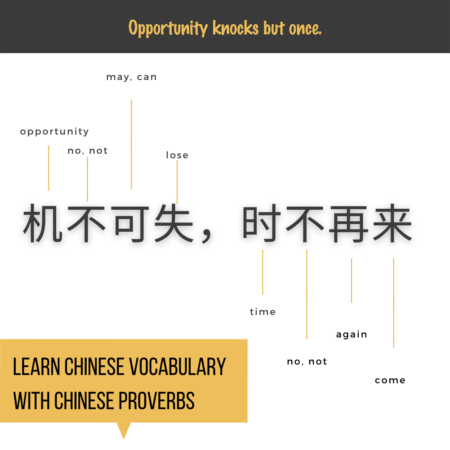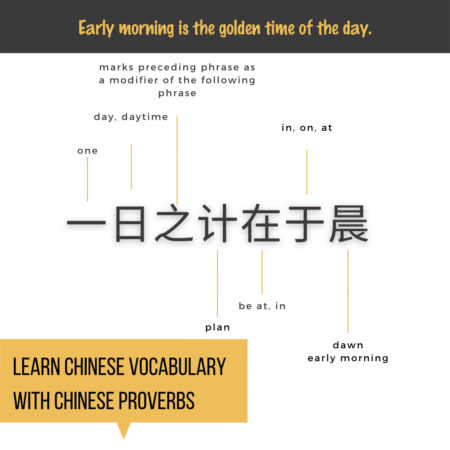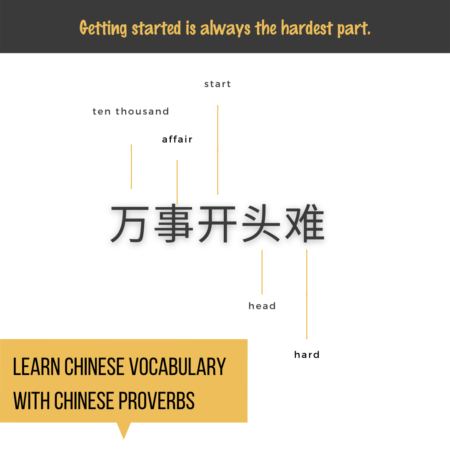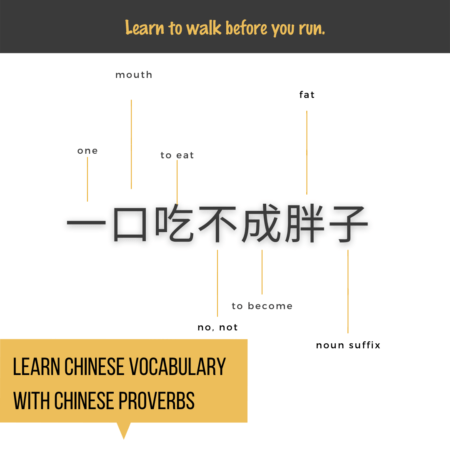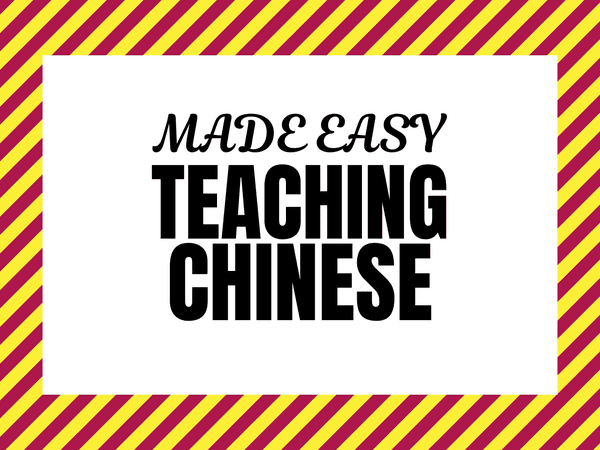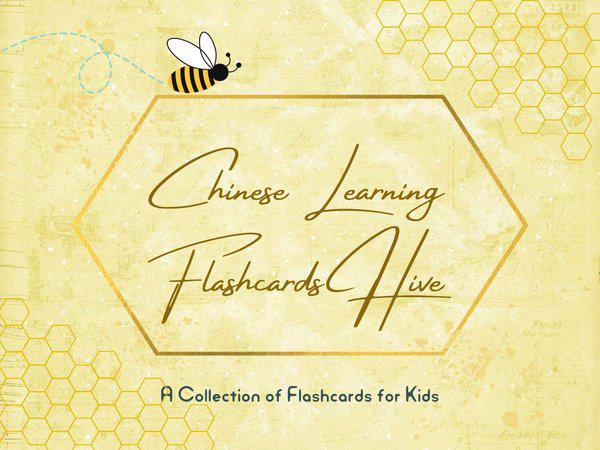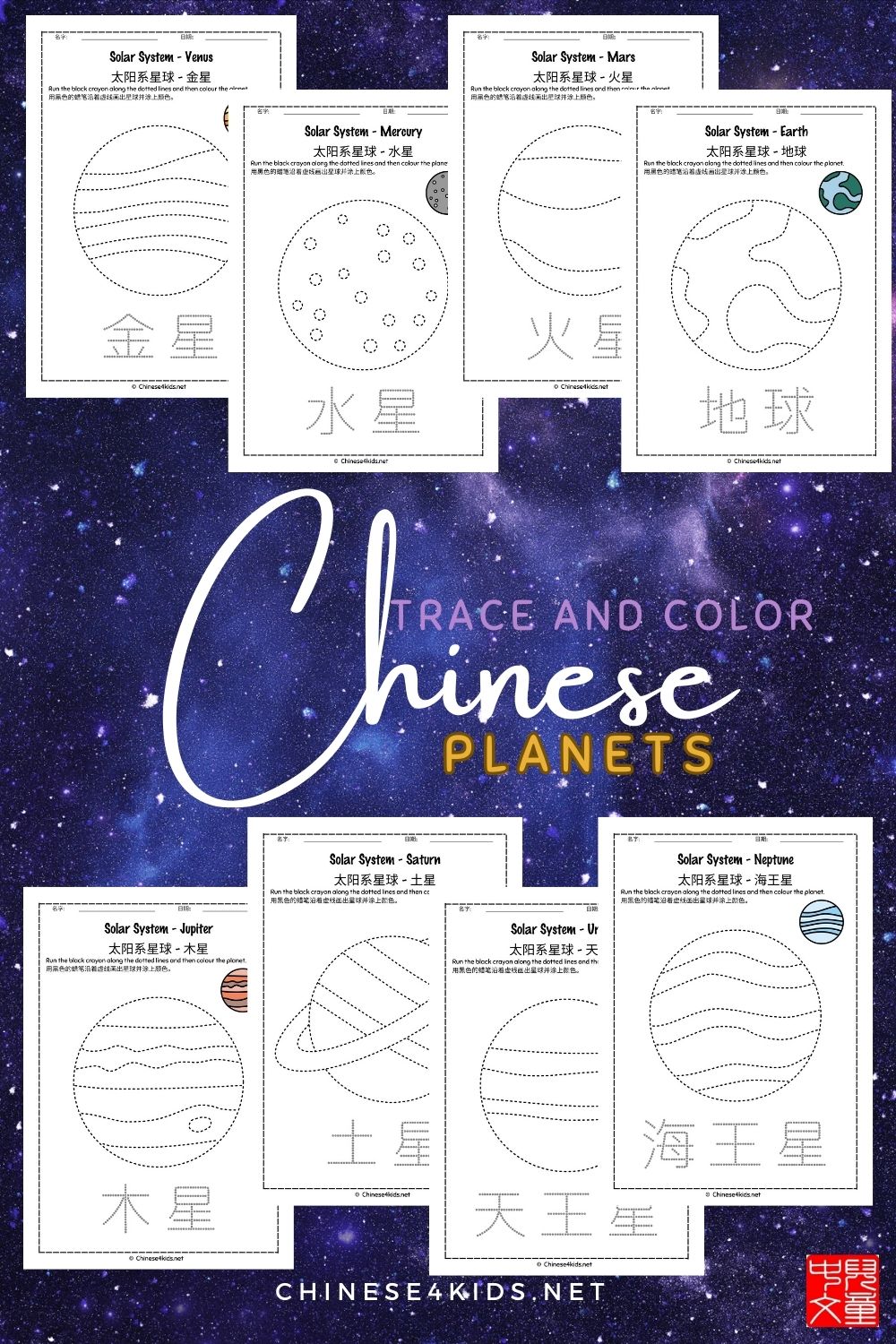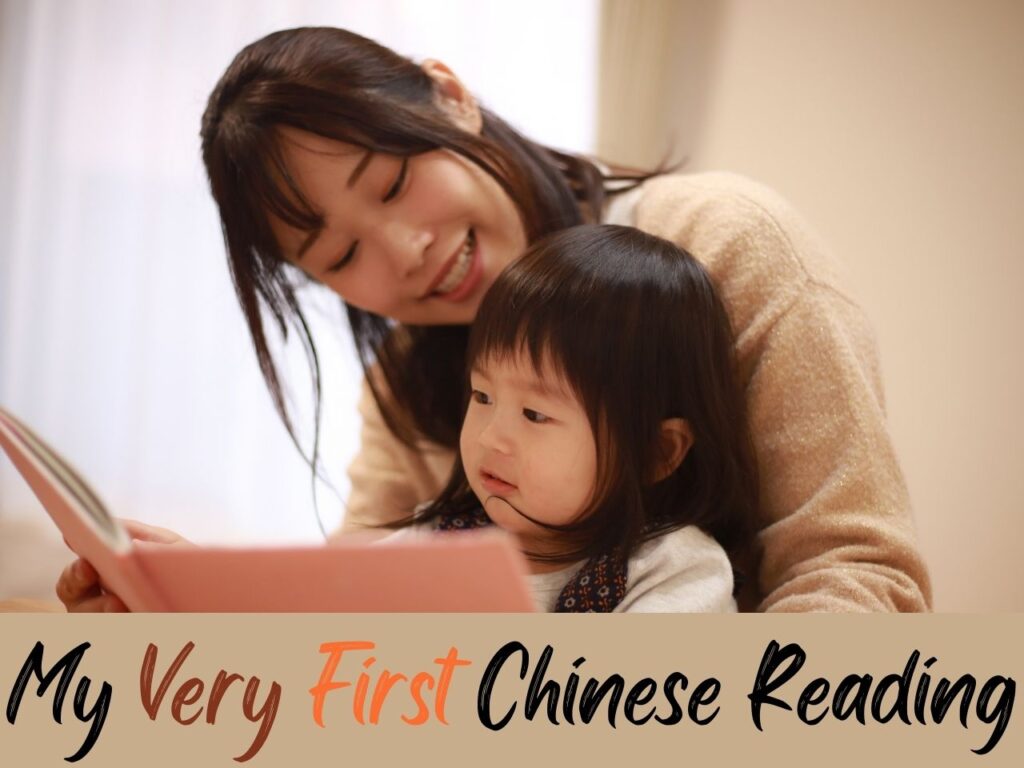
Learn Chinese Vocabulary with 10 Famous Chinese Proverbs
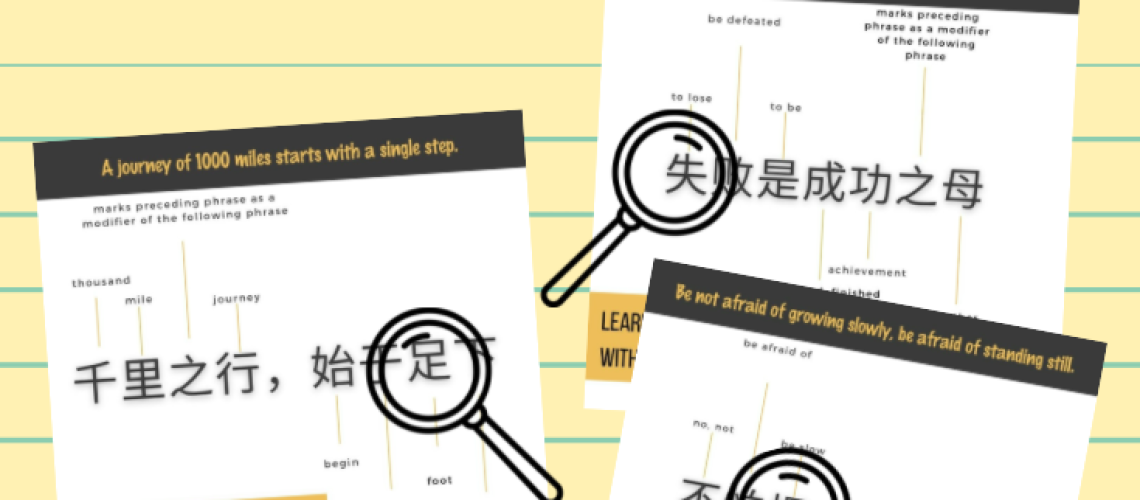
Chinese proverbs are full of wisdom from famous Chinese philosophers and writers. There are wise sayings on pretty much all aspects of our society: personal life, love & friendship, books, time, teaching & learning… You name it.
成语 vs 谚语
There are two types of proverbs (or idioms) in Chinese: 成语 (chéngyǔ) and 谚语 (yányǔ). 成语 are the proverbs that are fixed sayings with four (occasionally 6)characters. 谚语 are the proverbs that are longer. 成语 are more used by educated people while 谚语 are popular among folks.
We often know the meaning of Chinese proverbs, but seldom pay attention to the individual characters in them. It’s actually a great learning opportunity to dig into proverbs and learn the meaning of each character and therefore better understand the proverbs too.
Below you’ll find 10 famous Chinese proverbs. Let’s study them one by one.
10 FAMOUS CHINESE PROVERBS
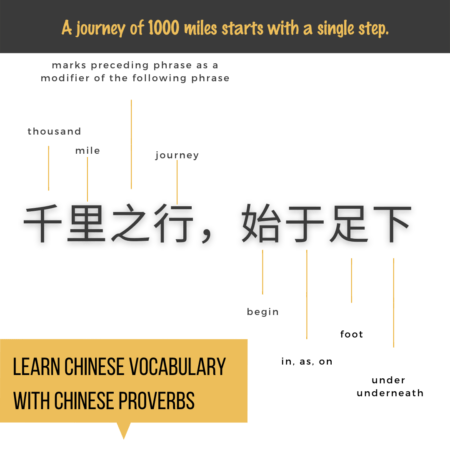
千里之行,始于足下
qiān lǐ zhī xíng, shǐ yú zú xià
A journey of 1,000 miles begins with a single step.
千 qiān thousand
里 lǐ a unit of distance in China. 2 里 is one km.
之 zhī marks preceding phrase as a modifier of the following phrase. It doesn’t have a specific meaning.
行 xíng journey, travel
始 shǐ begin, start
于 yú in, as, on
足 zú foot
下 xià under, underneath
If we translate it word by word, the translation would look like this
“A thousand-mile journey starts at under the feet. “
Well, the first step is right at your foot. Only by taking the first step, you can make a journey of 1000 miles.
不怕慢,就怕站
bú pà màn, jiù pà zhàn
Be not afraid of growing slowly, be afraid of standing still.
不 bù no, not
怕 pà be afraid of, to fear
慢 màn be slow
就 jiù just
怕 pà be afraid of, to fear
站 zhàn to stand
If we translate it word by word, it can be
Be not afraid of being slow, just be afraid of standing.
It’s OK to make slow progress, but you don’t want to make any move. A wise saying, isn’t it?
失败是成功之母
shī bài shì chéng gōng zhī mǔ
Failure is the mother of success.
失 shī to lose, make a mistake
败 bài be defeated
是 shì to be
成 chéng completed, finished
功 gōng achievement, merit, a good result
之 zhī marks preceding phrase as a modifier of the following phrase
母 mǔ mother
In this sentence, 失败 is one word, meaning failure and 成功 is another word, meaning success.
吃一堑,长一智
chī yī qiàn, zhǎng yī zhì
One only learns from one’s mistakes.
吃 chī to eat
一 yī one
堑 qiàn moat, pit
长 zhǎng excel in, grow
一 yī one
智 zhì wisdom, intelligence
This saying literally means “fall into the pit, gain in your wit” or “fall into the moat and you’ll be wiser next time”.
欲速则不达
yù sù zé bù dá
Haste makes waste.
欲 yù desire, want, long for
速 sù speedy, quick
则 zé (conjunction used to express contrast with a previous clause) but / then
不 bù no, not
达 dá arrive, reach
If we translate it word by word, we can get the following sentence:
Desire speed but not attain.
This proverb tells the truth that those who try to do things too quickly (by cutting corners) will not reach the desired results.
机不可失,时不再来
jī bù kě shī, shí bú zài lái
Opportunity knocks but once.
机 jī opportunity
不 bù no, not
可 kě may, can
失 shī lose
时 shí time
不 bú no, not
再 zài again
来 lái come
It literally means “Opportunity can’t lose, time not again come”, that is, do not lose an opportunity because the time won’t come round again.
一日之计在于晨
yī rì zhī jì zài yú chén
Early morning is the golden time of the day.
一 yī one
日 rì day, daytime
之 zhī marks preceding phrase as a modifier of the following phrase
计 jì plan, strategy
在 zài be at, in
于 yú in, on, at
晨 chén dawn, early morning
It literally means “make your day’s plan early in the morning”. The reason is that it will affect the whole day.
万事开头难
wàn shì kāi tóu nán
Getting started is always the hardest part.
万 wàn ten thousand; innumerable
事 shì affair, matter
开 kāi start, begin; open
头 tóu head; top; first
难 nán hard, difficult
There are two words in this proverb:
- 万事 ten thousand things, meaning all the things
- 开头 beginning
If we translate this proverb word by word, it becomes “All the things have a difficult beginning. “
However, things always get easier if we persevere, aren’t they?
一口吃不成胖子
yī kǒu chī bù chéng pàng zi
Learn to walk before you run.
一 yī one
口 kǒu mouth
吃 chī to eat
不 bù no, not
成 chéng to become, to turn into
胖 pàng fat
子 zi noun suffix
This proverb literally means “you cannot get fat with only one mouthful“. It implies that take things slowly, don’t overwhelm yourself from the beginning.
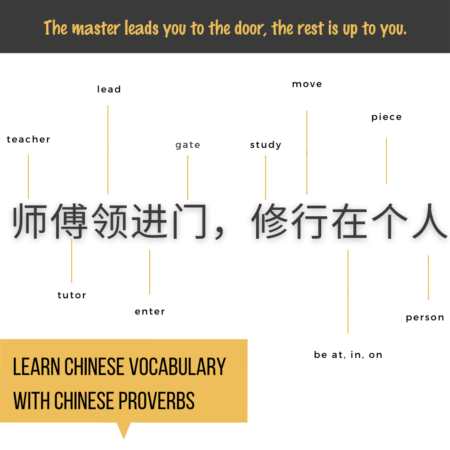
师傅领进门,修行在个人
shī fu lǐng jìn mén, xiū xíng zài gè rén
The master teaches the trade, but apprentice cultivates his skills.
师 shī teacher, master
傅 fu tutor, teacher
领 lǐng lead, guide
进 jìn advance, make progress, enter
门 mén gate, door
修 xiū study; repair; cultivate
行 xíng go; walk; move, travel; circulate
在 zài be at, in, on
个 gè piece; single
人 rén person
The three words in this proverbs are
- 师父 master
- 修行 to devote oneself to perfecting one’s art or craft
- 个人 individual
After having studied all these famous Chinese proverbs, do you feel you understand them better?
If you like this post, PIN IT!

You May Also Be Interested:
- Chinese4kids Membership – a portal for busy Chinese teachers and parents
- Chinese learning flashcards Hive – a flashcards library that with regular additions of new quality Chinese learning flashcards
- Chinese learning worksheets collection – Also a part of Chinese4kids membership, this collection is for teachers and parents who want to have access to engaging worksheets and activity sheets created for kids learning Mandarin Chinese as an additional language
- Speak Chinese with Kids Course
- Chinese Vocabulary Made Easy Course
Recent Posts
Join Our Membership
Enroll to A Course
Buy An eBOOK
Our Posts
